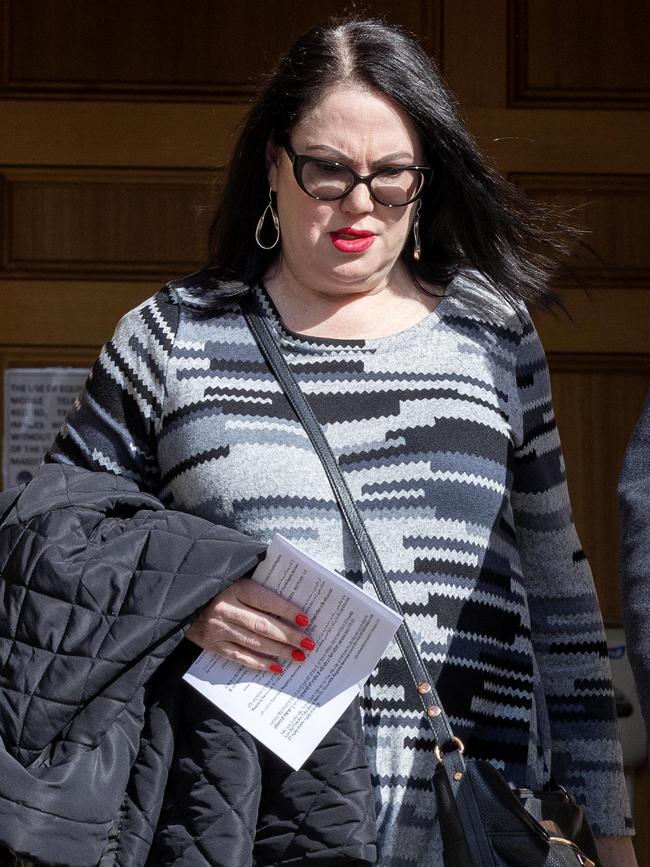Suspended ‘cosmetic doctor’ Kylie Austin admits forging prescriptions for herself and others
A doctor has admitted forging prescriptions for herself and others – including addictive opioid drugs – after a tip-off to police, a court has heard.
Police & Courts
Don't miss out on the headlines from Police & Courts. Followed categories will be added to My News.
A “cosmetic” doctor has admitted forging prescriptions for a series of medications – including opioid-based drugs – after the medical regulator tipped police off to her illegal activity, a court has heard.
Dr Kylie Austin, who lists herself online as a “cosmetic doctor”, pleaded guilty to two counts of forging a prescription during an Adelaide Magistrates Court hearing on Tuesday.
Prosecutors withdrew a further 15 counts in lieu of her pleas.
The court heard the trained medical doctor, who first registered with AHPRA in 1993, was suspended from practising as a medical practitioner in May 2020, at the time the agency alerted police to allegations she had forged prescriptions for herself and others.
The court heard police seized the original scripts from pharmacies in Stepney and Torrensville before a search of her home uncovered a number of handwritten prescription pad books and 2000 blank scripts for printing.

“It’s alleged that she has, during the various dates, prescribed medication to herself and others … on at least 15 different occasions,” a police prosecutor said.
The court heard Austin prescribed herself a variety of medications including migraine and opioid-based pain relief medication to treat a range of her own medical conditions between October 2019 and February 2020. She also forged a script for a child.
On two further occasions, in May 2020 and August 2020, she altered legitimate scripts for herself and another person to allow all repeats to be collected upfront.
John Edwards, for Austin, told the court a myriad of personal circumstances, including a marriage breakdown and surgery that prevented her from using some non-opioid medications, led to her offending.
He said the scripts allowed Austin to gain relief from her chronic pain, emotional distress and anxiety.
Mr Edwards said Austin’s two treating psychiatrists had found her prognosis was “highly favourable” and “positive”. One psychiatrist reported she was “predisposed to develop a substance use disorder”.
He said Austin had already been suspended for 3.5 years and was subject to an AHPRA undertaking preventing her from practising. He said the agency would separately impose its own consequences upon Austin.
“There has already been very real and significant consequences as a result of this offending,” he said.
Mr Edwards urged the court spare his client a conviction and suggested a good behaviour bond was the appropriate penalty.
The prosecutor asked the court impose a suspended sentence and conviction.
“It is serious offending by somebody in a position of trust, that we should be able to trust to do the right thing,” the prosecutor said.
The maximum penalty for the offence is five years in prison. She will be sentenced next week.



